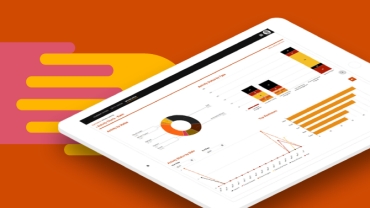
CLIENT
INDUSTRY
Pharmaceutical
FEATURING
Interactions Hub
Appian

SITUATION
Fighting rare and serious diseases needs tech up to the task
Time matters when you’re racing to develop drugs to fight rare debilitating illnesses like Huntington’s disease and Duchenne muscular dystrophy. Efficient and compliant collaboration with the healthcare community is critical. The exchange of scientific information between healthcare providers and drug makers is key to quickly developing and commercializing important, life-changing drugs.
PTC was growing quickly, and so were commercial, educational and research programs designed to exchange scientific information and foster trust in the company’s therapies. Managing requests from medical researchers for grants and funding to study a drug or to help a patient in need was crucial. Engaging healthcare providers to speak to their peers about the safety and efficacy of specific drugs was also key. The manual process PTC used to manage these critical activities just took too much time.
A full 65% of pharmaceutical and medical device companies rely on manual tools to support their provider and patient interactions processes. At PTC, these programs and their compliance activities operated separately, by email, spreadsheets and printed forms. PTC employees were bombarded with paper documents they had to sift through to help ensure compliance and execution.
Employees were driven by the urgency of their work but hampered by the time involved in manually searching for key information in documents, submissions, reviews and correspondence. This process delayed company responses and slowed critical decisions. Employees understood they were fighting a relentless enemy: disease. Fast response was critical but elusive.
PTC leaders knew they had to automate the process, in order to accelerate decision-making and enable employees to allocate more time to high-value tasks. They recognized that an automated system would make the process less arduous, could track its complex programs with just a few clicks and would help improve compliance at every step. Using automation to save time and eliminate burdensome paper processes can free employees to focus on the mission, not the minutiae.

SOLUTION
Adopt a one-stop product to help reduce complexity and generate insights
PTC needed to implement a streamlined, intuitive, easy-to-use digital solution that would help the company more efficiently manage its interactions with doctors, patients, organizations and researchers for operations around the globe, boosting confidence and trust along the way. This required a solution that automated these processes and operated seamlessly with compliance.
By bringing together PTC’s business strategy goals, keeping a focus on human-centered experience and seeking the appropriate technology solution, it became clear that Interactions Hub, a PwC product, met those needs — and provided a path to intelligent business and compliance insights.
Goodbye bottlenecks, hello faster decisions
Gaining speedy access to treatments for patients left little time for navigating complex company systems. PTC’s strategy was to engage healthcare providers and launch outreach programs to spur interest and expand research. Tracking myriad details and helping to make sure compliance with an array of laws and industry guidelines was key to success. To get there, PTC needed to save time and money and help its people focus on the core business strategy, all while building trust.
Bringing these programs under one digital system would help clear bottlenecks, boost productivity, reduce costs and help PTC’s employees spend more time analyzing data that could help with business decisions. Importantly, speeding decisions and compliance reviews would boost PTC’s goal to raise the profile of its drugs and have them be used as safely and quickly as possible.
Automating the process without missing a step
When there are hundreds of moving pieces, it’s important to improve existing processes and approval chains to develop something more efficient for those who will use it. Some PTC staff spent 25% of their time with email and paper for approvals and compliance. Reducing time spent on those tasks, not breaking down their process, was the goal. Understanding the procedure chains and improving PTC’s processes were core to success. PwC worked with PTC’s employees to first understand the complex steps and handoffs and then considered how they could use technology to replicate those tasks to make the chain faster, more transparent and compliant.
Making it familiar but easier and faster for a healthcare provider to work with PTC was a must. Imagine the frustration of a doctor trying to get compassionate care use approval for a patient with a rare disease, whose best hope was to try a yet-to-be-approved drug, only to find the system for requesting it to be so cumbersome or confusing that the doctor couldn’t work through it? PTC was determined to make sure that didn’t happen. PwC helped build the PTC external facing portals so that organizations and providers can easily submit compassionate care, educational and research grant requests — and track their status in real time on Interactions Hub.
Low-code, scalable tech gets the job done
PwC built Interactions Hub using Appian — a low-code platform that is purpose-built to digitize complex business processes — to create a streamlined system that fits the way PTC works and grows. With Appian, PwC was able to adapt the system to PTC’s requirements and integrate with other PTC systems substantially faster and at a lower cost than other solutions available. Efficiency didn’t come at the cost of flexibility or user experience. And the tech was easily fitted for the processes and chain of handoffs PTC uses, speeding up the change. For instance, PTC was able to launch its end-to-end speaker program technology in less than eight weeks, whereas just defining requirements for this type of program could often exceed that timeframe.
The agile capabilities of the Appian Low-Code Platform helped PwC instill Interactions Hub with real-time tracking of doctors speaking to their peers about PTC’s drugs. Approval sign-offs were embedded into the workflows for compliance monitoring and risk management. The low-code system allows PTC to be more self-sufficient, and its employees can run custom reports and dig for data without needing outside guidance, thereby reducing IT support and other resource needs. What’s more, the external grant portal operates with a single link but in multiple languages, with translation capabilities so submitters can work in their local language and reviewers can review grant request details — automatically translated as needed.

RESULTS
Mission-focused: connected, agile and compliant
PTC’s adoption of Interactions Hub has cut response time across the board. Employees can now engage healthcare providers and plan and execute meetings and events much faster than ever before. The PwC-designed system eliminated several separate systems that didn’t communicate with each other. The new system also boosts the company’s ability to verify its compliance with a raft of changing federal and state laws and industry guidelines. The solution is seamless and used in every country PTC operates, resolving a massive pain point for biotech and other healthcare companies.
Time that employees had spent reading emails, hunting down responses and creating paper trails is now used to work on high-value programs that help the company achieve its ultimate mission: developing life-changing drugs.
“We are committed to bringing moments to patients with rare and serious diseases, so we don’t have time for inefficient systems. This new system is a behind-the-scenes game-changer that contributes to our mission.”
“Interactions Hub digitizes the process for managing healthcare providers and patient interactions and gives PTC more time to focus on the collaborative healthcare process and the drugs they’re developing.”
CASE STUDIES. REAL IMPACT.
Expertise. Technology. Results. Powered by collaboration. Explore our case studies to see what’s possible.











